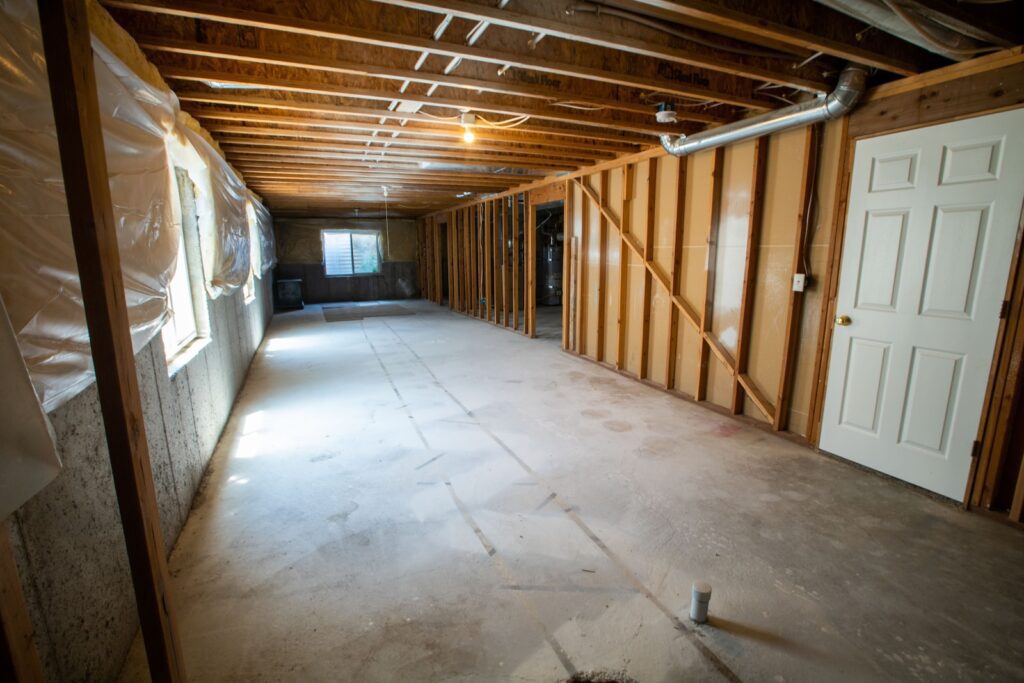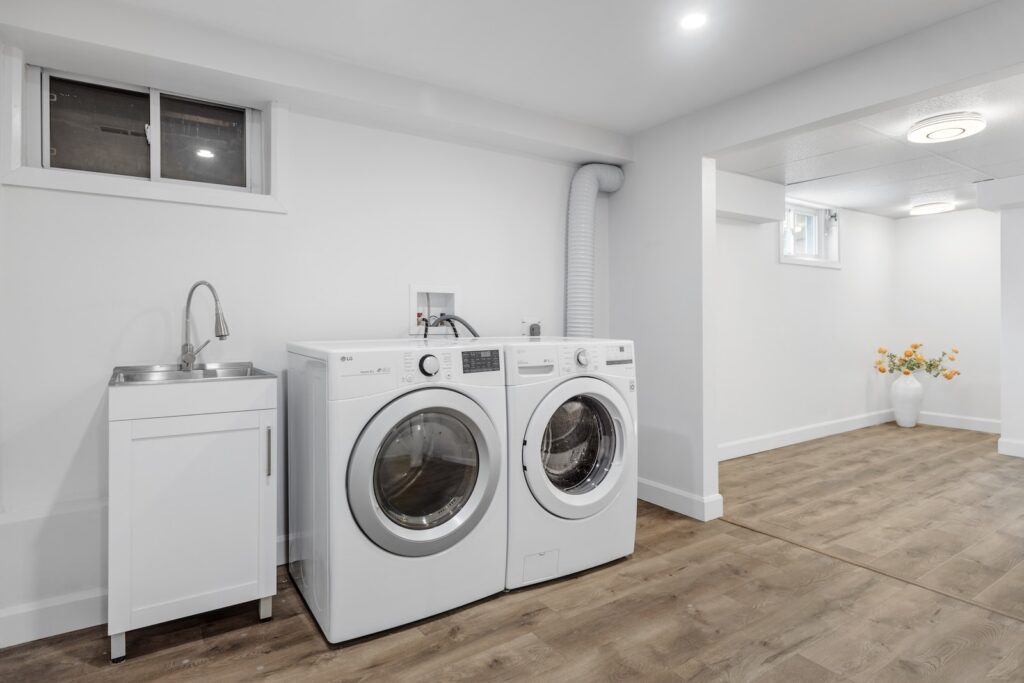Are you planning to renovate your basement or build a new one? One of the crucial aspects to consider is the type and style of windows. With various options available, it can be overwhelming to choose the right one that fits your needs. That’s why we’ve created this essential guide to basement window types and styles to help you make an informed decision. From egress to hopper windows, we’ve got you covered.
Basements are often overlooked spaces in a home, but they can be transformed into functional and beautiful areas with the right design elements. One important aspect to consider when designing a basement is the type and style of windows you choose. Basement windows have a unique set of requirements due to their below-grade location, making it essential to choose the right type of window for your space. In this guide, we will explore the different types and styles of basement windows, their benefits, and what to consider when choosing the right window for your space.
Types of Basement Windows
- Awning Windows
- Hopper Windows
- Sliding Windows
- Casement Windows
- Glass Block Windows
When it comes to basement windows, there are several types to choose from, each with its own unique features and benefits. Awning windows are hinged at the top and open outwards, providing ventilation and natural light while keeping rain and debris out. Hopper windows, on the other hand, are hinged at the bottom and open inwards, making them an ideal choice for small spaces. Sliding windows slide horizontally, while casement windows are hinged on the side and swing outwards. Glass block windows are made of thick, translucent glass blocks that provide privacy and security while still allowing natural light to enter the space.
When choosing the right type of window for your basement, consider factors such as the size of the space, the amount of natural light you want to let in, and your ventilation needs. Awning and hopper windows are ideal for small spaces, while sliding and casement windows work well in larger areas. Glass block windows are an excellent choice for areas that require privacy, such as bathrooms or bedrooms.
Styles of Basement Windows
- Single-Hung Windows
- Double-Hung Windows
- Fixed Windows
- Egress Windows
- Basement Window Wells
Along with different types of windows, there are also various styles of basement windows to choose from. Single-hung and double-hung windows are the most common styles and are available in a range of sizes. Fixed windows are non-operable and are often used for decorative purposes or to provide natural light in areas where ventilation is not necessary. Egress windows are required by building codes in many areas and provide a safe exit in case of an emergency. Basement window wells are used to provide light and ventilation to below-grade spaces and are available in a range of materials, including concrete and plastic.
When choosing the right style of window for your basement, consider factors such as your budget, the amount of natural light you want to let in, and your ventilation needs. Single-hung and double-hung windows are an affordable and versatile option, while fixed windows are an excellent choice for decorative purposes. Egress windows are required by law in many areas and provide a safe exit in case of an emergency. Basement window wells are an excellent choice for spaces that require additional light and ventilation.
Benefits of Basement Windows
There are several benefits to installing basement windows in your home. Firstly, they provide natural light and ventilation, helping to improve air quality and reduce the risk of mold and mildew growth. They can also help to reduce energy costs by allowing natural light in and reducing the need for artificial lighting. Additionally, basement windows can add value to your home by increasing the amount of living space and improving the overall aesthetic of your home.
Basement Window Vs. Above-Grade Windows
Basement windows have several key differences from above-grade windows, including their location, size, and function. Basement windows are typically smaller than above-grade windows and have specific requirements due to their below-grade location. They also require special considerations such as egress requirements and the need for window wells to provide adequate light and ventilation.
Above-grade windows, on the other hand, are located above ground level and are often larger than basement windows. They can be operable or non-operable and are available in a range of styles and materials. While they share some similarities with basement windows, they have different requirements and considerations due to their above-grade location.
Picking Basement Windows For Your Home
When it comes to designing a functional and beautiful basement space, choosing the right type and style of windows is essential. With the right windows, you can bring natural light and ventilation into your space while improving air quality and reducing energy costs. By considering your space’s unique requirements, such as egress requirements and ventilation needs, you can choose the perfect basement windows to transform your space into a functional and beautiful area.

Frequently Asked Questions
What are the different types of basement windows?
There are several types of basement windows, including sliding windows, hopper windows, awning windows, and casement windows. Sliding windows slide horizontally, while hopper windows open inward from the top and awning windows open outward from the bottom. Casement windows, on the other hand, pivot open from the side.
Each type of basement window has its own advantages and disadvantages, so it’s important to consider your specific needs and preferences when choosing the right type for your basement.
What are the benefits of basement windows?
Basement windows provide several benefits, such as allowing natural light into your basement, improving ventilation, and increasing the safety of your home. Natural light can help brighten up your basement and make it feel more welcoming, while proper ventilation can help prevent moisture buildup and mold growth.
Additionally, having basement windows can also provide an additional escape route in case of an emergency, making your home safer for you and your family.
What should I consider when choosing basement windows?
When choosing basement windows, there are several factors to consider. These include the size and placement of the windows, the type of window that will work best for your needs, and the materials used to make the windows. You should also consider your budget and any local building codes or regulations that may apply.
Additionally, you may want to consider factors such as energy efficiency, ease of maintenance, and security features when choosing basement windows.
How do I maintain my basement windows?
To keep your basement windows in good condition, it’s important to clean them regularly and inspect them for any signs of damage or wear. You should also check the weatherstripping and seals around the windows to ensure they are in good condition and replace them if necessary.
If you notice any damage or issues with your basement windows, it’s important to address them promptly to prevent further damage and maintain the safety and security of your home.
Can I install basement windows myself?
While it is possible to install basement windows yourself, it is generally recommended to hire a professional contractor to ensure the installation is done correctly and safely. A professional can help you choose the right type and size of window for your basement and ensure that it is installed properly to prevent leaks and other issues.
Additionally, a professional installation can help ensure that your basement windows meet any local building codes or regulations that may apply, and can help prevent damage or injury during the installation process.
Windows 101: Window Styles
In conclusion, choosing the right basement window type and style is crucial for the safety, functionality, and aesthetic appeal of your home. By understanding the different options available, such as egress windows, sliding windows, and hopper windows, you can make an informed decision that meets your needs and budget.
When selecting a basement window, it’s important to consider the size, location, and purpose of the window. Egress windows are required by law in many areas to provide a safe exit in case of emergency, while sliding windows are ideal for ventilation and easy access. Hopper windows are a popular choice for basements with limited space, as they open inward and offer great insulation.
Ultimately, by investing in high-quality basement windows and working with a trusted contractor, you can improve the value and comfort of your home while ensuring the safety and security of your family. So don’t hesitate to explore the many options available and find the perfect window for your basement today!


